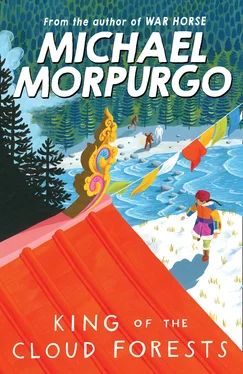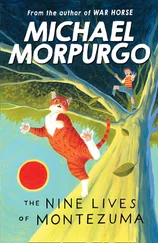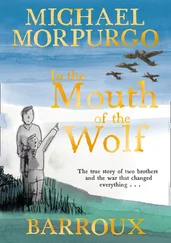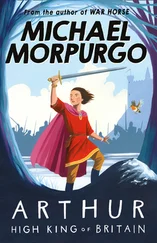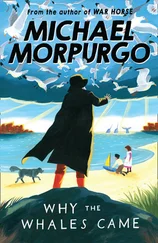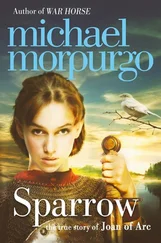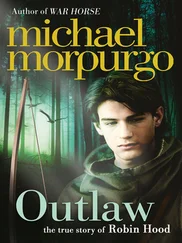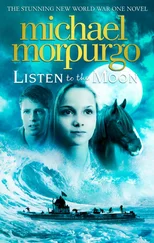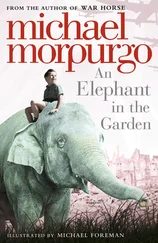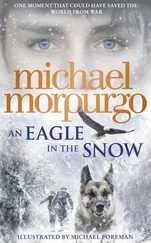The Mission school was as crowded as the hospital. There was no building. It was held in the open just inside the gate. There I learned to read and write in Chinese – difficult for me since I spoke English to my father and Uncle Sung was doing his best to teach me Tibetan – and my father would come each day just as we were about to finish and tell us a parable that few of us could understand, or a grisly story from the Old Testament that everyone preferred. I remember he told us once of the dry bones that got up and walked about again, and for days after that we were all walking skeletons rattling our arms and legs and chattering our teeth.
Lin was my particular friend. He did not come every day to school for his father was always keeping him at home as a punishment. He should have known better for punishment did Lin no good at all. To the delight of everyone at school he was always wonderfully wicked. One morning before school began he climbed the tree close to where the teacher always stood during lessons and lay hidden on a branch right above her making ludicrous faces at everyone below. He was only discovered when he fell out of the tree and landed at the teacher’s feet. He got up, rubbed his sore shoulder and said, ‘Sorry I’m late’. I cannot remember the teacher’s name, but I do remember Lin tormented her dreadfully.
Lin was the smallest boy in the class. I was already a head higher than anyone else and two heads higher than him. I took after my father it seemed. When we were alone I would often carry Lin on my back, because it was quicker that way, and anyway he said he could see better. We always used horses to get down to the river though and he rode with superlative ease as if he was attached to the horse’s back. Lin loved to fish – he would turn exultant cartwheels whenever he caught one. He tried to teach me but I never had the talent or the patience for it so I was given the job of killing whatever he caught. He was more successful in teaching me how to swim. He taught me how to float. ‘You just have to believe you can,’ he told me and after that I found it easy enough to swim, although I never could speed through the water as he did.
I learned more with Lin than I ever did at school. It was Lin who first taught me that things are not always how they seem to be, how they should be or how I had been told they were. It was from him I learned for the first time that there were some Chinese that disliked and even hated missionaries like my father. There were even people in the town who would burn down the Charlotte Anderson Mission, given some encouragement. Lin told me too of the Japanese invasion and how their armies were marching through China from the East. He showed me with his fishing spear how he would treat them if they ever reached Ping Ting Chow.
‘But that’s killing,’ I said.
‘So?’ said Lin.
‘You know what my father says,’ I told him. ‘Thou shalt not kill, remember?’
‘We kill to eat, don’t we?’ said Lin, suddenly serious. And so we debated hotly until sunset not only whether it was ever right to kill, but also whether or not Jesus Christ could ever be wrong about anything. Lin was the first person in my hearing ever to challenge directly what my father always called ‘the word of the Lord’. I knew he and Uncle Sung talked about these things but this was different. I worried more about that than the advancing Japanese army. I began for the first time in my life to find it difficult to say my prayers at night and mean them. I had begun to doubt.
Uncle Sung was reassuring about the Japanese. ‘Do not worry yourself over the Japanese, Ashley. Between us and them is the whole Chinese army. They will not let them pass.’ I dared not mention what Lin had said about Jesus for I knew he would refer me to my father about such matters. I kept my doubts to myself.
But it was not long after this that we heard for the first time the dull rumble of distant bombing and soon the town began to fill with tired soldiers. The first wounded arrived at the hospital and I found my father and Uncle Sung working day and night alongside a Chinese army doctor who demanded that the soldiers always had to be looked after before the civilians. One evening I remember he insisted once too often. I witnessed my father’s anger from the bottom of the hospital steps as he turned on the army doctor. ‘Major, this place is for the healing of the sick and that we will do whether or not they are soldiers. We are all God’s children in or out of uniform, whatever the uniform.’ The army doctor looked hard at my father, his eyes blazing with anger. I was quite sure at that moment that my father would be taken away and shot, and I’ve always thought if Uncle Sung had not intervened that could indeed have happened. Uncle Sung led the army doctor away and pacified him somehow. I don’t know what he said, but whatever it was it worked. After that although Father and the army doctor were never the best of friends, they at least tolerated each other.
There was no school any more now and Lin and I sketched out elaborate plans in the river mud for the defeat of the Japanese. They were coming from the south and the north now, Lin told me, and we knew from the soldiers’ stories where the battle fronts were. ‘Let them come,’ he said fiercely. He was ready for them.
Then one day Lin did not come to the Mission and I was on my own. I rode down to the river bank, but he wasn’t there. As evening fell I searched the narrow streets of the town for news of him, but no one seemed to know where he had gone. It was almost dark as I walked back up the hill towards the Mission gates. A small figure came out from the shadows to meet me. He was wearing a uniform. He saluted and laughed. It was Lin. ‘But you’re only fourteen,’ I protested.
He held up his rifle in front of me. ‘I can shoot this and that’s all that matters,’ he said. ‘And anyway I’m not fourteen, not really. I only said that to be the same age as you – I’m not so small if I’m fourteen, am I? I’m sixteen and I won’t be much taller by the time I’m twenty. Make a smaller target, don’t I?’ We laughed and shared a cigarette before shaking hands solemnly. I watched him walk away and vanish into the smoky dark of the town.
The bombers came the next morning, throbbing and roaring above us. Father and I were in the middle of breakfast and we heard the cheering outside in the compound. I remember Father looking out of the window and saying, ‘What are they cheering about? Can’t they see they’re Japanese?’ Then he was shouting to them to take cover. He pushed me under the table and threw himself on top of me as the first bomb fell.
I WAS CONSCIOUS OF DUST AND SMOKE AND OF Father’s weight on top of me. I could hear screaming from the compound and I thought I should say a prayer if I was going to die, but as the fifth and sixth bombs fell, and fell further and further away, I thought there was no need. The drone of the bombers faded and all about me was a terrible stillness.
‘Is it over?’ I whispered. ‘Have they gone away? Father? Father, can you hear me? Will they come back?’ There was no answer. I twisted under my Father’s weight to look at him. His eyes were closed and there was blood in his black hair and on his forehead. I looked past him and only then understood that the house had collapsed on top of us. The table top was on my Father’s back and all around us lay the splintered, torn timbers that had been our walls and ceilings. The teapot with the blue fish on it that Uncle Sung had given us one Christmas long ago lay so close that I could reach out and touch it with my fingers. It was broken in half so that the fish was cut in two. There was tea trickling out of the spout, warm on my hand.
Читать дальше
